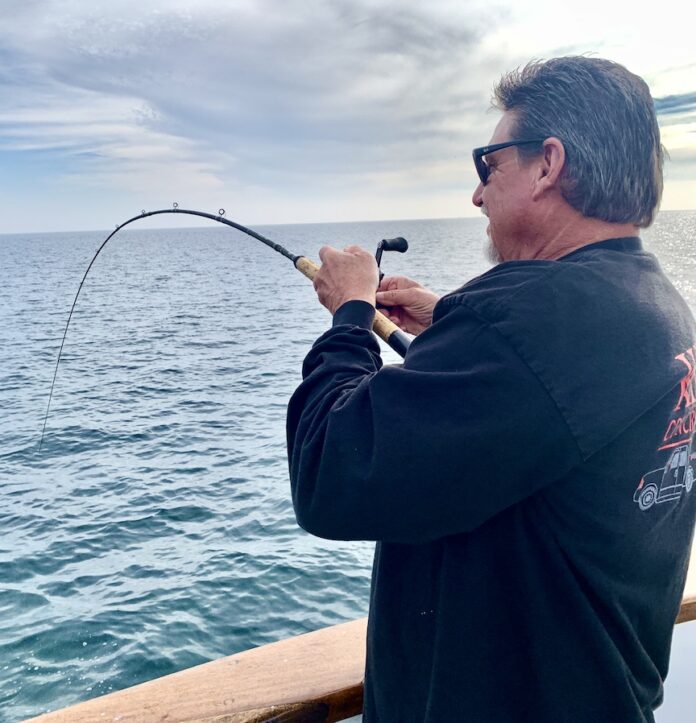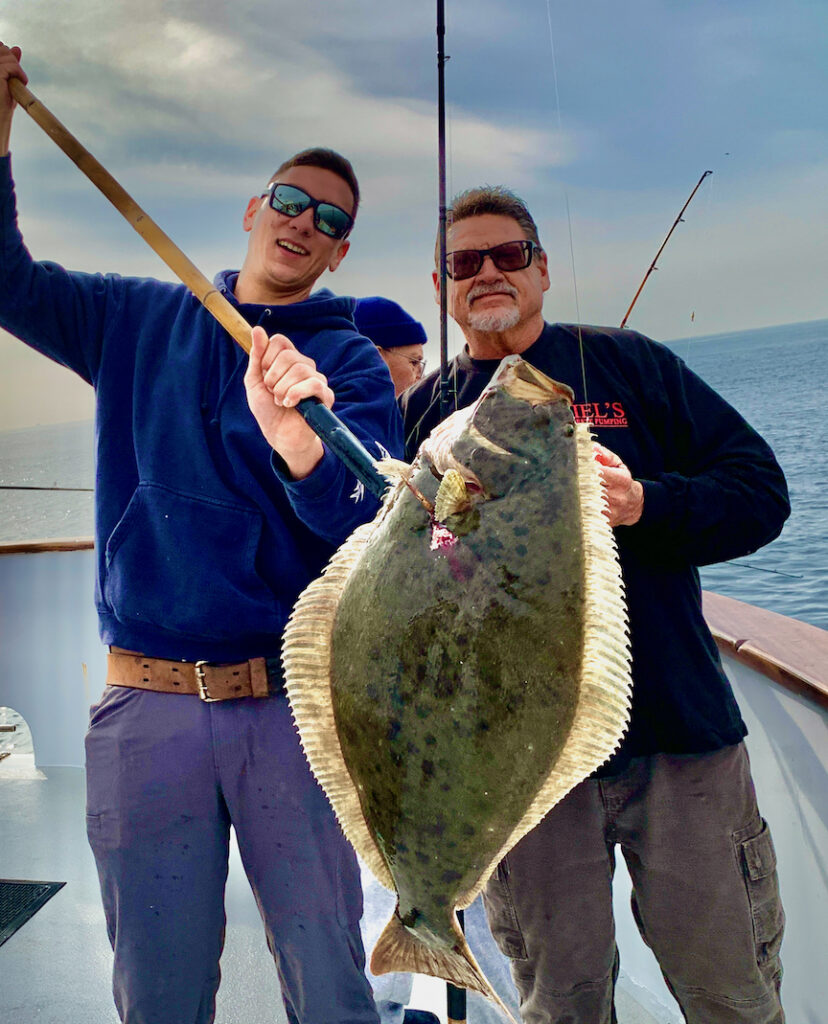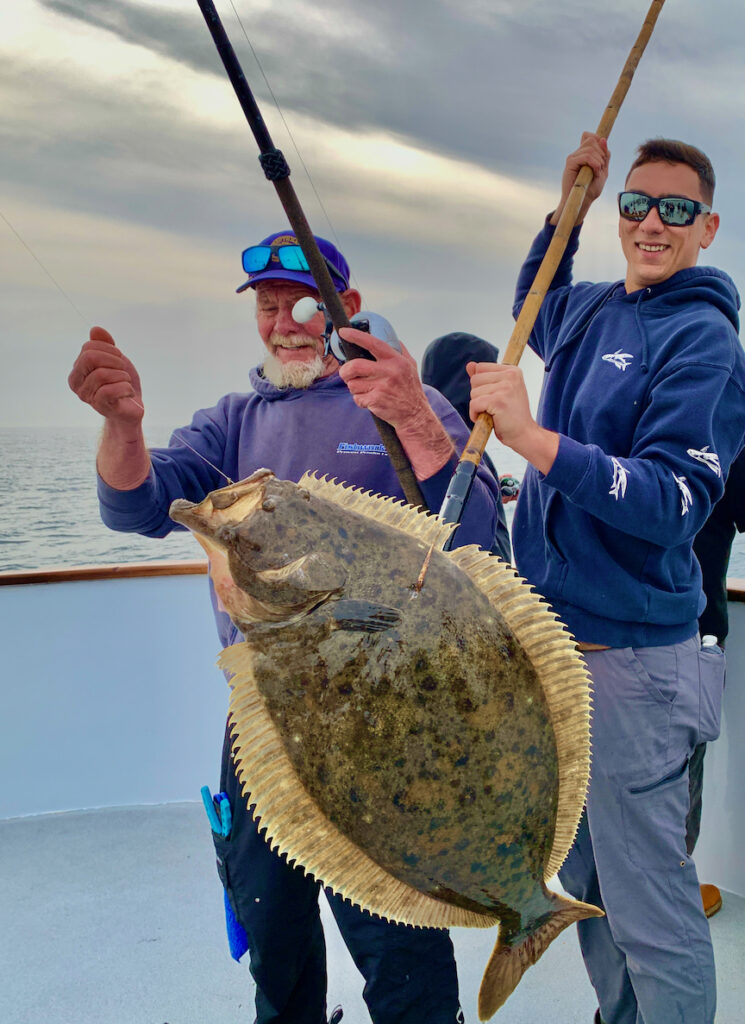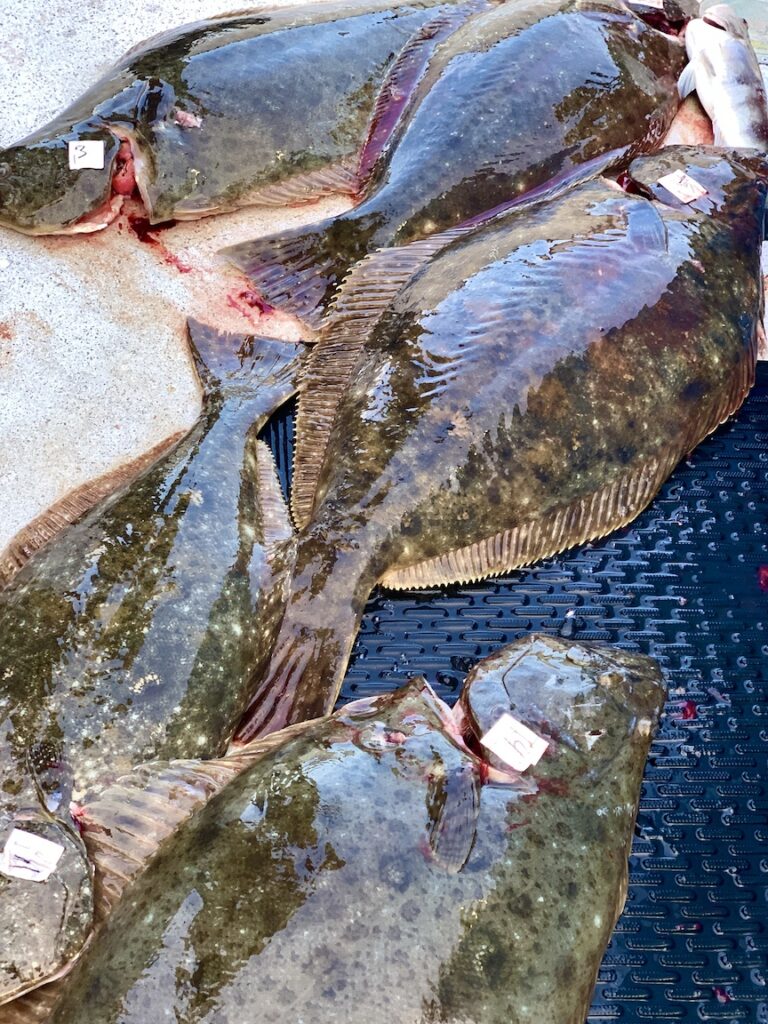
BY JON DICKENS
With rockfish season closed, and the few sportboats getting off the dock focusing on sculpin and whitefish, there hasn’t been a lot going on to get anglers off the couch. But for you hardcore guys who just need to wet a line, this is a good time to sharpen your bite-detecting skills on structure-oriented calico and sand bass. And, there’s a new game in town for those wanting to strictly target bass and big halibut.
Aaron Graham, Captain/Owner of Native Sun Sportfishing running out of 22nd Street Landing in San Pedro, recently announced their First Annual Native Sun Bass & Halibut Fishing Derby, and the halibut have definitely been snappin’! Getting out with light loads, the ¾-day boat has had a handful of nice sized halibut per trip, plus lots of shorts and good numbers of sand and calico bass. The top five halibut on the leader board as of this writing range from 16- to 25-pounds, and the top bass is just shy of four pounds, so there’s lots of opportunity to get on the board before the derby ends on April 30, 2024.

$5,000 in prizes
With over $5,000 in prizes, the top five fish in each category will win the grand prizes, plus there will be a junior division, and there’s an additional monthly prize for the biggest bass and halibut. All bass entered in the derby must be released, which is a great conservation move to protect the resource, and all fish will be weighed on the boat. Best of all, there’s NO entry fee. Your ticket covers the entry fee and ticket prices have been reduced as well during the derby. Win-win!
Trips run from Wednesday to Sunday each week, and the prizes include custom wrapped rods from Moon’s Custom Rods, United Composites rods, and Daiwa Lexa reels from Savon Tackle; free passes for the Aloha Spirit and Native Sun; Fishworks, Performance Tackle, and 22nd Street Landing gift cards, and much more. Call 22nd Street Landing, 310-832-8304, for more info.
Native Sun Capt. Graham, who came up with the derby idea said, “We’ll be targeting both halibut and bass each day, with tides and conditions dictating how much time we spend on each category, but because we’re fishing locally, there will be plenty of time to get in a good whack at each species.”
I got out on the second trip of the derby and 16 anglers scored six keeper halibut, with three of them going between 11 and 16-pounds, plus a dozen shorts and a few handfuls of calico and sand bass. Since then, there’s been three halibut over 20-pounds landed so there’s a solid chance of getting a big doormat flattie on each trip, as this has been a relatively untouched fishery over the past few years, and the fish are close to home. No wasted time travelling to the islands.

Halibut tips and techniques
Nice winter-time sardines have been the bait of choice for the halibut and there are several ways of rigging them. “The key has been light line,” said Capt. Graham. “I’d suggest using a reverse dropper loop rig with a 20-pound fluorocarbon leader, a two- to eight-ounce torpedo sinker depending on conditions, and the liveliest sardine you can find. Fish a light drag and always keep the fish’s head in the water when you get it next to the boat or it’s likely to go ballistic and break you off.”
Dave Kiel, a master halibut fisherman, offered up a couple of tips on how he fishes for halibut. “When there’s very little drift, due to a lack of current or wind, try casting and dragging your bait in to cover more ground. Use a three- or four-ounce sinker with a two-foot leader and a number six treble hook. With a fast drift, use a trap rig, which is a j-hook with a five- to six-inch piece of mono or fluorocarbon tied to the shank of the j-hook and a treble hook on the end. The j-hook goes in the nose of the bait and the treble trap hook is pinned near the tail of the bait. Use a five- to 10-ounce sinker, or whatever it takes to keep the rig on the bottom. That trap hook catches those short biters. If you don’t want to bait-and-wait, another technique is bouncing a leadhead with a white or sardine colored fluke off the bottom, or the everything-eats-‘em Hookup Bait. They can be very effective at times.”
Bass tricks
For the bass, the go-to set-up is heavy 30- to 40-pound fluorocarbon leader tied to a 1.5- to 2-ounce leadhead, or a 3/0- 6/0 hook with a sliding egg sinker and a whole squid threaded onto the hook. Critical is getting your bait sitting in the rocks right on the bottom. If you don’t feel the structure (rocks), try another spot on the boat. If you’re not in the structure, you won’t get bit. Be patient. Your squid will likely get pecked at by the resident perch, but wait for the big bite before you swing and then wind fast to get the fish’s head out of the rocks.
This winter is a good time to support those who support you. Get out on the Native Sun during their derby and even if you don’t snag one of their great sponsors’ prizes, a day on the water is a whole lot better than sitting on the couch.




